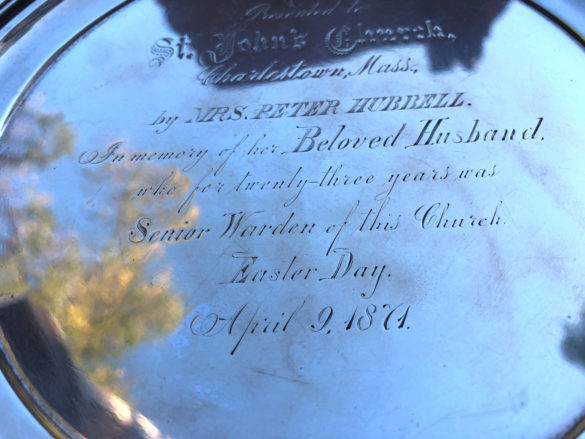I first met the Rev. John H. Finley IV, Headmaster of Epiphany School in Dorchester and our guest preacher this Sunday, nearly ten years ago, when he came to preach at a service at the Episcopal Chaplaincy at Harvard. A few years later, I bumped into him while visiting St. Mary’s in Dorchester, where he serves as a priest associate, and he invited me on a tour of Epiphany, a tuition-free, independent Episcopal middle school for economically-disadvantaged children in Boston.
John is an enthusiastic man — his email sign-offs alternate between “Your Grateful Fan” and “Your GRATEFUL Fan” — and it’s not hard to see why. Epiphany is an extraordinary place, part school and part life-long community. The school’s sense of community extends in every direction. Students spend longer-than-usual days during a longer-than-usual year at school, but the school spends even more time on them, following students for years after graduation and providing ongoing support for alumni as they continue to grow and learn. (How many middle schools do you know, after all, that run SAT prep classes?) In lieu of tuition, families commit to volunteering regularly for the school. Teachers stay on for years; current Principal Michelle Sanchez has been at Epiphany since its founding in 1998. And Epiphany is connected in dozens of ways to the neighborhoods around it, to Episcopal churches throughout Massachusetts, and to schools in a network across the country.
More recently, Epiphany has become both younger and greener, adding a 22,000-square-foot Early Learning Center and expanding its community garden program, and I’m excited to hear the school’s ministry continues to grow, and what they’ve learned from the experience of the last couple years.
More than anything, though, I’m excited to hear John preach once more, and to welcome him (back) to St. John’s. I hope you can join us this Sunday for his sermon at the 10am service, and for an informal conversation about Epiphany School that he’ll lead during Coffee Hour.




